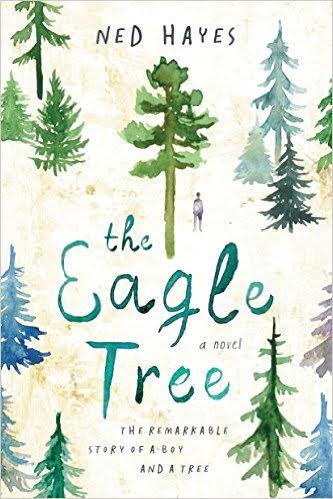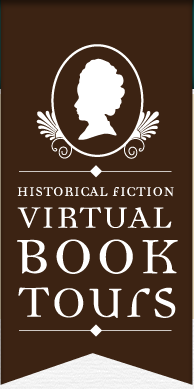
• Paperback: 270 pages
• Publisher: Little A (July 5, 2016)
Fourteen-year-old March Wong knows everything there is to know about trees. They are his passion and his obsession, even after his recent falls—and despite the state’s threat to take him away from his mother if she can’t keep him from getting hurt. But the young autistic boy cannot resist the captivating pull of the Pacific Northwest’s lush forests just outside his back door.
One day, March is devastated to learn that the Eagle Tree—a monolithic Ponderosa Pine near his home in Olympia—is slated to be cut down by developers. Now, he will do anything in his power to save this beloved tree, including enlisting unlikely support from relatives, classmates, and even his bitter neighbor. In taking a stand, March will come face-to-face with some frightening possibilities: Even if he manages to save the Eagle Tree, is he risking himself and his mother to do it?
Intertwining themes of humanity and ecology, The Eagle Tree eloquently explores what it means part of a family, a society, and the natural world that surrounds and connects us.
Review:
March Wong is a young man who loves trees and especially climbing trees. In a tree he finds meaning to the rest of the crazy world, he can find calmness. March Wong is also autistic and climbing trees is an obsession that has gotten him in trouble more than once. Now, there is a hearing to see if his mother is a fit guardian for him. On the heels of his hearing, March finds a new tree. With help from his Uncle, March goes to the old growth forest, the LBA Woods in Olympia Washington. After climbing several trees, he spots a very tall tree standing out from the rest. It is a Ponderosa Pine; affectionately called the Eagle tree. It is an unusual tree to grow in that habitat and March must climb it. However, the land that the Eagle Tree grows on is bought by a private developer and it is now a rule that March cannot climb the tree; the developers will also cut the tree down. In his obsession to now save and climb the Eagle Tree, March will overcome many of his fears in order to get the support he needs to save the beloved tree.
“I am like a tree that looks dead to the world, but when you climb to the very top, you find bright green limbs sucking sap one hundred feet from the ground. And you discover the tree is very much alive, and is keeping its secret life from the world.”
In a wonderful combination of forest ecology and a very specific look into an autistic mind, Ned Hayes has created a unique story line. As someone who loves trees and has also worked with people who have autism, this book was perfect for me. I was most impressed with the voice of the narrator; told completely from March’s point of view, I was easily brought into March’s world in a way that was easily understandable. March’s human experience was brought to light through this point of view; his focus, ways of thinking, interactions with others and sensory needs were brought to the forefront so it was easily relayed to all the ways that March needed the trees; from the way that the leaves filter light, to thinking about each step in order to climb to the basic biology of the tree. In addition, as a caretaker, I could also relate to March’s mother’s frustrations with how he interacted with the world beyond trees. March’s ability to grow through his own means with the help of the Eagle Tree and his willingness to campaign for it was well done. Overall this is a touching, emotional and environmentally conscious book, perfect for someone looking for something a little different.
This book was received for free in return for an honest review.
Praise
“Every human experience is unique, but The Eagle Tree provides insight into one distinctive and uniquely important perspective. The descriptions of climbing in The Eagle Tree get deep into the mathematical pattern-based sensory world of a person with autism. The experience of navigating a tree climb is described with mathematical and sensory detail that seems very authentic to me.” —Temple Grandin, PhD, author of Thinking in Pictures and Emergence: Labeled Autistic
“The Eagle Tree is a gorgeously written novel that features one of the most accurate, finely drawn and memorable autistic protagonists in literature. The hero of the book is like a 14-year-old Walt Whitman with autism, seeking communion with the ancient magnificent beings that tower over the landscape around Olympia, Washington. Ned Hayes plays with the conventions of the unreliable narrator so that you end up feeling like March is a very reliable narrator of glorious and terrifying aspects of the world that neurotypicals can’t see. Credible, authentic, powerful. A must-read.” —Steve Silberman, author of NeuroTribes: The Legacy of Autism and the Future of Neurodiversity, winner of Samuel Johnson Prize for Non-Fiction
“The Eagle Tree portrays a teenager who is believable and lovable. March, the main character, is a living, breathing person with significant challenges who is so realistic I feel I know him. I have not enjoyed an autistic novel as much since The Curious Incident of the Dog in the Night-Time. The Eagle Tree’s beautifully written narrator is a real joy—March Wong is an unexpected leader who remains true to himself and prevails. This novel of family and forest will leave an indelible mark on your heart.” —Susan Senator, New York Times featured author of Making Peace with Autism and Autism Adulthood
“A wonderful read! To say that the narrator’s mind is unusual would not be correct. His mind is simply and marvelously unique like yours and mine. Or rather, like yours and mine could be if we lifted the eyes of our hope to the crowns of trees and listened to the voice of our neglected spirit. The Eagle Tree will remind you of the beauty and truth you may have forgotten.” —Francisco X. Stork, award-winning author of Marcelo in the Real World
Purchase Links
Amazon | IndieBound | Barnes & Noble

Ned Hayes holds an MFA in creative writing from the Rainier Writing Workshop at Pacific Lutheran University. His historical novel, Sinful Folk, was nominated for the Pacific Northwest Booksellers Association Award.
The Eagle Tree is based on his past experience working with children on the autistic spectrum and on family and friends he knows and loves. He lives with his wife and children in Olympia, Washington.
More about Ned Hayes can be found at NedNote.com. Connect with him on Twitter.







 RSS Feed
RSS Feed



